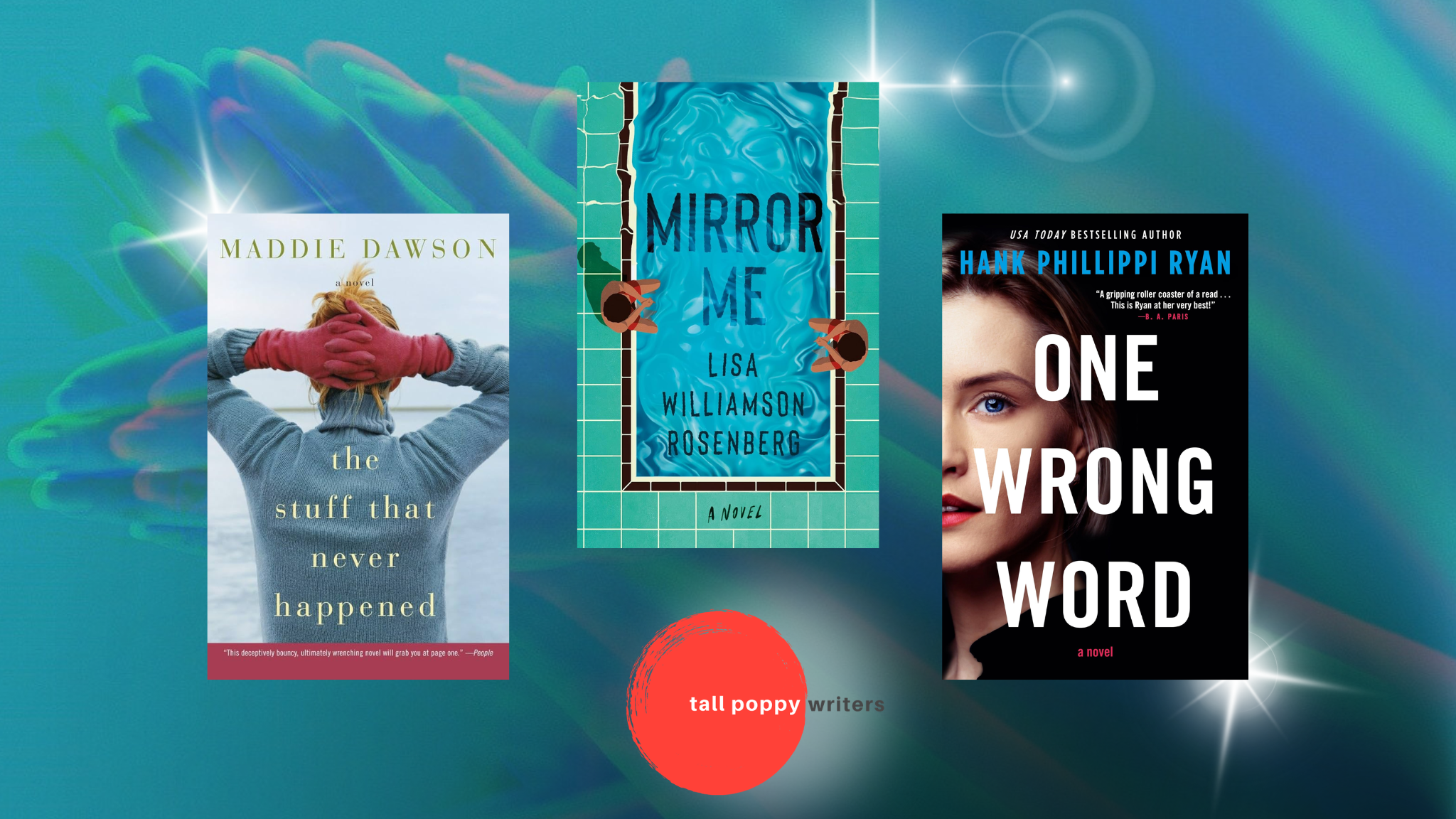Long before a novel lands on shelves — or in online shopping carts — it’s a bone the author’s imagination picks with her as she’s walking the dog, doing laundry, or stuck in the Lincoln Tunnel at rush hour. Next comes the outline she writes, tosses, and replaces; the drafts her mother, critique partners, and beta readers rip to shreds or gush over. There’s the draft the author thinks is awesome — but about which her agent feels lukewarm. There’s the draft the agent loves and submits to editors who soundly reject it. But then comes the lucky draft, the dream draft that goes to auction because it’s so freaking fabulous that five editors want to acquire it. The author accepts a deal! And — after two rounds of edits, a copyedit, a proofread, and a prelaunch promo drumroll — it’s publication day!
Will the book receive a cacophony of kudos? Or a resounding collective meh? All authors can count on is that readers will interpret our work in ways we never intended or imagined. And, once we get over our knee-jerk they-completely-missed-the-point! defensiveness, the surprise can actually be kind of fun.
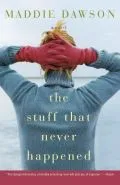 Washington Post bestselling author Maddie Dawson was caught off guard by the stark split between older and younger women readers over her novel The Stuff That Never Happened, about a marriage shaken by secrets and tragedy. An extramarital interest on the part of the wife was seen sympathetically by older women readers, while younger women were outraged and inclined to side with the husband.
Washington Post bestselling author Maddie Dawson was caught off guard by the stark split between older and younger women readers over her novel The Stuff That Never Happened, about a marriage shaken by secrets and tragedy. An extramarital interest on the part of the wife was seen sympathetically by older women readers, while younger women were outraged and inclined to side with the husband.
T.M. Blanchet, A Mighty Blaze podcast host and author of Herrick’s End and Herrick’s Key, collectively known as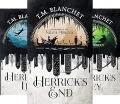 The Neath Trilogy, says her series is “mainly designed to be a fun, rollicking adventure tale.” But it resonated in a surprisingly personal way with some readers. “I heard from so many people who could relate to the main character’s struggles with weight. Readers told me that they appreciated seeing a realistic, relatable plus-size character in the story, which is unfortunately pretty uncommon in popular culture.”
The Neath Trilogy, says her series is “mainly designed to be a fun, rollicking adventure tale.” But it resonated in a surprisingly personal way with some readers. “I heard from so many people who could relate to the main character’s struggles with weight. Readers told me that they appreciated seeing a realistic, relatable plus-size character in the story, which is unfortunately pretty uncommon in popular culture.”
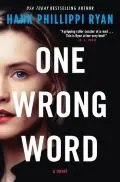 USA TODAY bestselling author Hank Phillippi Ryan shares, “I did a big cross-country book tour for my psychological thriller One Wrong Word. I was always surprised — and touched — by how at every event, someone would take me aside, and quietly tell me that what happened to the main character had happened to them as well — how they had worried whether they’d handled it the right way.
USA TODAY bestselling author Hank Phillippi Ryan shares, “I did a big cross-country book tour for my psychological thriller One Wrong Word. I was always surprised — and touched — by how at every event, someone would take me aside, and quietly tell me that what happened to the main character had happened to them as well — how they had worried whether they’d handled it the right way.
“When I confided that the novel revealed my own personal history, and how I had healed my past by writing it as fiction — as a do-over — several of them burst into tears.” Ryan adds, “It really shows me how our writing can connect us and change people’s lives.”
With my own debut, Embers on the Wind, told in linked stories about an Underground Railroad safehouse turned 21st Century Airbnb, what surprised me most was one of the categories my publisher selected in the marketing process. Occult Horror! Really? I thought. Horror? I’d considered the book to be literary fiction with a hint of magical realism and a dash of Black history. But the consensus — even among many five-star reviewers — was: This book is scary! Well, I’d written it, so it didn’t scare me. But then I considered: the book begins with a séance. One of the main characters is a ghost who — arguably — kills someone. Okay, I saw it. The horror. Even the occult part. Then I was able to fully appreciate the TikToker who cautioned: People, DO NOT read this book at night!
what surprised me most was one of the categories my publisher selected in the marketing process. Occult Horror! Really? I thought. Horror? I’d considered the book to be literary fiction with a hint of magical realism and a dash of Black history. But the consensus — even among many five-star reviewers — was: This book is scary! Well, I’d written it, so it didn’t scare me. But then I considered: the book begins with a séance. One of the main characters is a ghost who — arguably — kills someone. Okay, I saw it. The horror. Even the occult part. Then I was able to fully appreciate the TikToker who cautioned: People, DO NOT read this book at night!
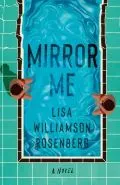 Some of the advance reviews of my second book are just as unforeseen. Now, I’ll acknowledge: Mirror Me is unconventional. Eddie Asher, a young man with mysterious memory lapses fears he killed his brother’s fiancée. Eddie checks into a psychiatric hospital to find out what happened. The only one who knows the truth is Pär, a disembodied consciousness who lives, unbeknownst to Eddie, in a scar on the latter’s right shoulder. The narrative plays with themes of identity, jealousy, and revenge along with these questions: Who and what is Pär? How will he use his influence over Eddie? Will Eddie fight for his own agency? Is Lucy really dead?
Some of the advance reviews of my second book are just as unforeseen. Now, I’ll acknowledge: Mirror Me is unconventional. Eddie Asher, a young man with mysterious memory lapses fears he killed his brother’s fiancée. Eddie checks into a psychiatric hospital to find out what happened. The only one who knows the truth is Pär, a disembodied consciousness who lives, unbeknownst to Eddie, in a scar on the latter’s right shoulder. The narrative plays with themes of identity, jealousy, and revenge along with these questions: Who and what is Pär? How will he use his influence over Eddie? Will Eddie fight for his own agency? Is Lucy really dead?
What’s been the most fun, the most surprising, is how people view the character of Pär. To many, he’s an alter ego of Eddie’s. To some, he’s a demon. To some, he’s Eddie’s own personal Greek Chorus. Pär is a mystery that doesn’t get solved until the book’s biggest reveal. I love hearing that people keep turning pages, trying to guess who and what he is.
Just remember this: a book’s journey doesn’t really begin until it has received the stamp of a reader’s insight. Your participation is the most important step — you’re the ultimate participant in the story of a book!

